The Drug Shop Operators Handbook
A High-Impact Practice Tool Developed to Improve Family Planning Outcomes
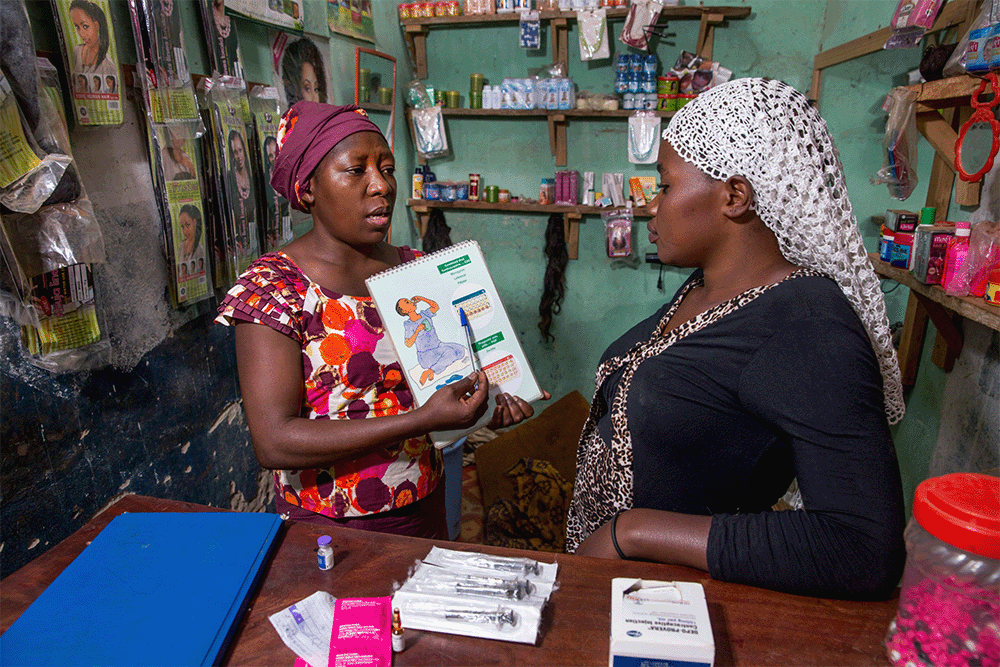
In July 2021, USAID’s Research for Scalable Solutions (R4S) project, led by FHI 360, released the Drug Shop Operators’ Provision of Injectable Contraception manual. The handbook shows how drug shop operators can coordinate with the public health system to safely provide an expanded method mix that includes injectables, as well as training for clients on self-injection. The handbook was developed in Uganda in partnership with the National Drug Shop Task Team but can be adapted to various contexts in Sub-Saharan Africa and Asia. Knowledge SUCCESS’ contibuting writer Brian Mutebi talked to Fredrick Mubiru, Family Planning Technical Advisor at FHI 360 and one of the key resource persons involved in the development of the handbook, about its significance and why people should use it.
Q: What are the components of the drug shop operators’ handbook that R4S developed?
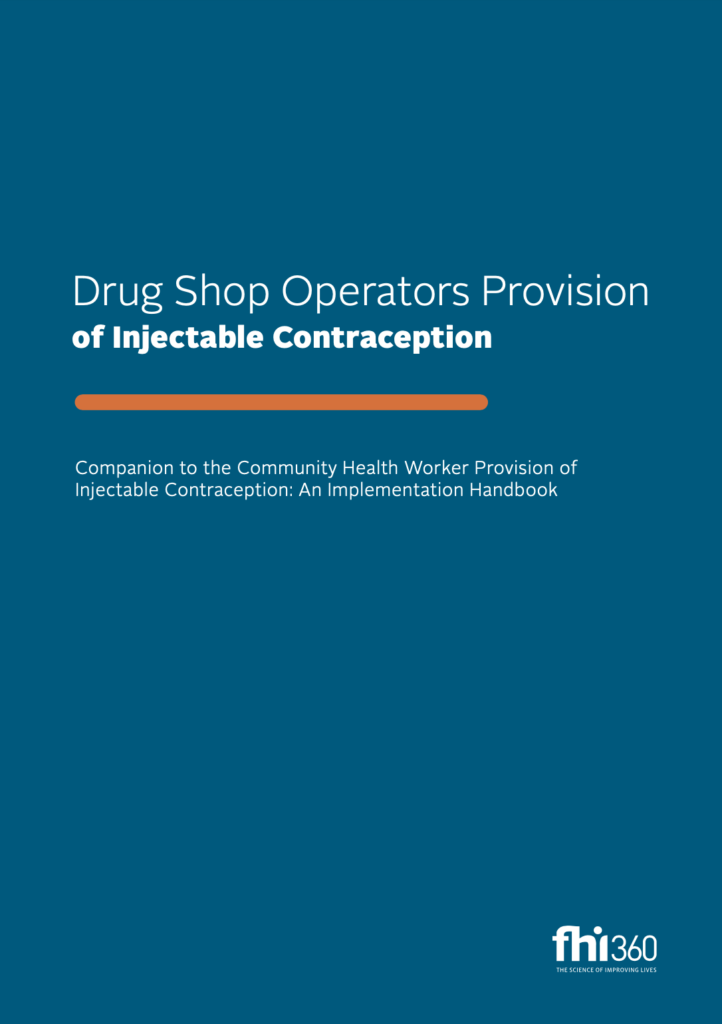 A: The handbook describes nine components that are needed to support an expanded method mix with private sector drug shops, specifically by including injectable contraceptives. These are:
A: The handbook describes nine components that are needed to support an expanded method mix with private sector drug shops, specifically by including injectable contraceptives. These are:
- Determine the need for drug shop operator provision of injectables and self-injection.
- Evaluate the potential costs for adding it to community-based family planning services.
- Integrate it into national policy and service guidelines.
- Mobilize the community and raise awareness about the service.
- Ensure a logistical system that supports proper waste management and a steady provision of supplies.
- Train drug shop operators to provide the service.
- Establish systems for supportive supervision.
- Document and share processes and outcomes.
- Ensure successful scale-up.
The components are not necessarily sequential.
Q: Why did R4S develop this material, and what needs does it fill?
A: The handbook was written as a companion to Community Health Worker Provision of Injectable Contraception: An Implementation Handbook, published in 2018. It outlines step-by-step guidance on how to coordinate private drug shops with the public health system to safely provide an expanded method mix, including administering injectable contraceptives and training clients on self-injection. The handbook targets program managers, policymakers, and those interested in expanding community-based family planning services by working with trained and accredited drug shop operators.
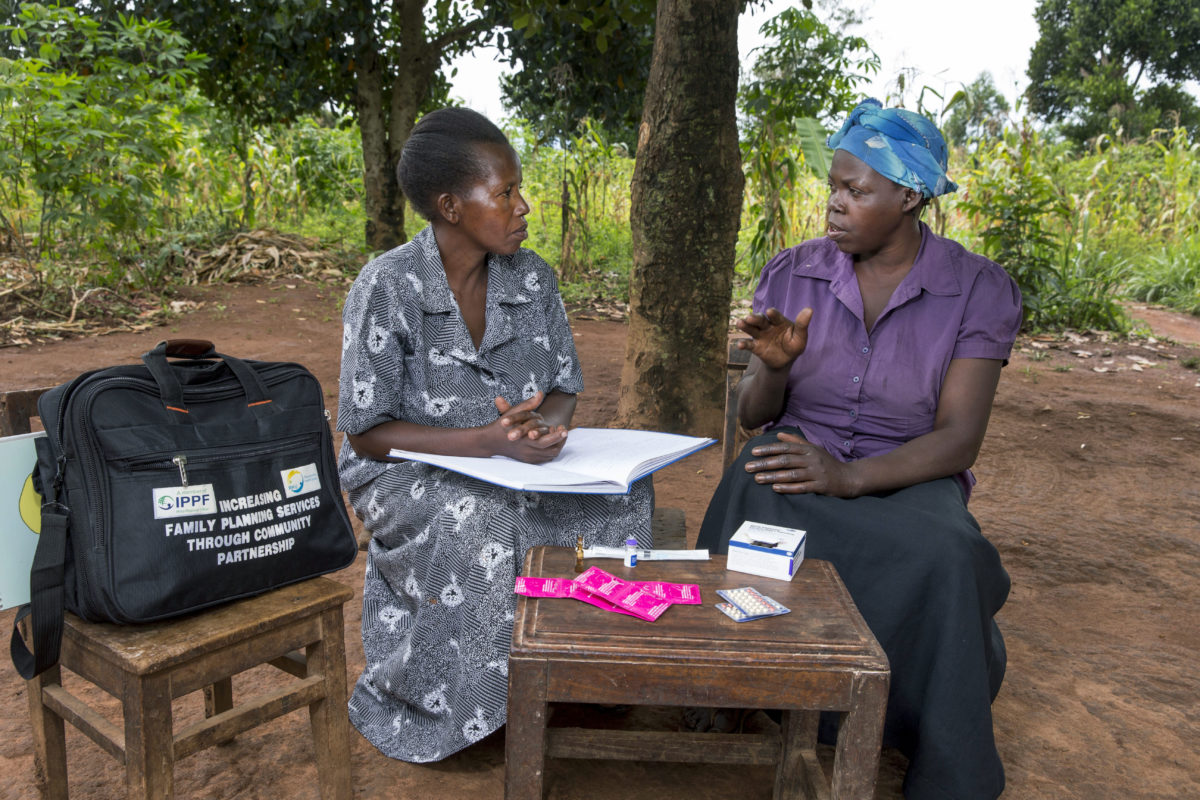
The handbook draws heavily on lessons and experiences from work done by FHI 360, Uganda’s Ministry of Health, and the national task force on contraceptive injectable provision in drug shops. In Uganda, private drug shops are considered community-based health service providers, yet are not included in national family planning strategies or policies. In developing the handbook, therefore, we sought to bridge this gap.
Q: What steps were taken, and why, in developing the handbook?
A: Since the handbook is designed for national-level stakeholders, we held consultations with stakeholders at the national level, particularly members of the family planning injectables task force. They were supportive and helped align the handbook with realities and expectations on the ground. Content was packaged and reviewed by the members of the Drug Shops Task Force before it was finalized and published.
Q: Why did Uganda present a unique case study?
A: Uganda was the first country in sub-Saharan Africa to amend its policy to support national scale-up of an expanded family planning method mix in drug shops, including provision and administration of injectable contraceptives and self-injection in 2019. There had been similar interventions before for community health workers who were trained to administer injections.
Q: What is the primary user base seeking injectable contraceptives from drug shops, and what is their typical experience?
A: Injectables are the most popular family planning method in Uganda but, until recently, were offered only by health workers at health facilities and hospitals. The country’s 10,000 drug shops, which provide greater access to family planning services in hard-to-reach rural areas, were authorized to supply only short-acting, non-prescription methods such as condoms and emergency contraceptive pills. We found out that younger women under 25 years of age preferred getting family planning services from drug shops to other service providers. This was mainly because drug shops are often closer to home and therefore easy to access, have contraceptives in stock, and have extended hours of operation compared with public health centers. We also established that men and women in communities generally approve of drug shops providing depot medroxyprogesterone acetate (DMPA), an injectable contraceptive that is highly effective and safe for most women and can also be self-administered. Clients desire convenience and reliability in accessing family planning services.
Q: What challenges do you foresee in getting key stakeholders to use the handbook, and how has the project tried to address those?
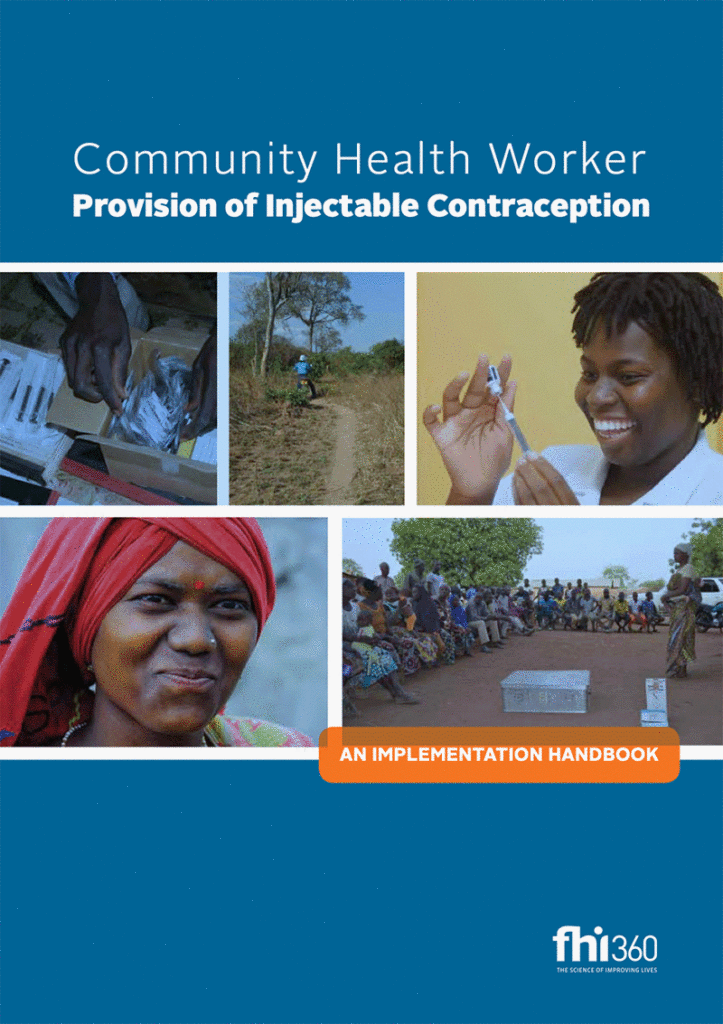 A: Drug shops operate differently in various policy and operational contexts, so the handbook may be used differently in various countries. It is also important to note that the handbook was developed as an addendum to the community-based access to injectables handbook, and may therefore be challenging to use or roll out in contexts without a prior community family planning program. However, in countries where there are existing drug shops and pharmacy working groups or task force teams or community family planning projects, as is the case for Uganda, R4S has ensured that the handbook is widely disseminated and is monitoring its adoption.
A: Drug shops operate differently in various policy and operational contexts, so the handbook may be used differently in various countries. It is also important to note that the handbook was developed as an addendum to the community-based access to injectables handbook, and may therefore be challenging to use or roll out in contexts without a prior community family planning program. However, in countries where there are existing drug shops and pharmacy working groups or task force teams or community family planning projects, as is the case for Uganda, R4S has ensured that the handbook is widely disseminated and is monitoring its adoption.
Q: During the process of developing the handbook, what did R4S learn and how did they incorporate that into the final product?
A: From the feedback we received during the consultation process, we learned that the guide needed to be simple and easy-to-use, including in rural contexts. The handbook was structured in sections with simple, bullet-format content on key aspects, such as success factors, for each section. Service providers wanted practical examples of provision of injectable contraceptives, so we included examples as quotations from user experiences and text boxes with advocacy stories from Uganda and Tanzania, among others. And while the handbook was developed at the national level, we learned that stakeholders were interested in a clear sub-national and community-level dissemination plan. Dissemination at these levels was ensured through the national drug shops task force, and the Ministry of Health family planning focal person tasked NGOs to make sure dissemination of the handbook takes place in the areas where they work.
Q: Tell us a little bit about how private drug shops function in Uganda. How do they coordinate with the larger health system? What challenges are there?
A: In Uganda, drug shops are recognized within the health system as private for-profit health service providers. They are registered, licensed, and regulated by the National Drug Authority, a government body. Drug shops are located in the communities and primarily operate on a retail basis. They are thus part of the community health service system.
One of the main challenges faced in the operation of drug shops in Uganda is regulation. Many drug shops are not licensed and, therefore, may not adhere to the prescribed Ministry of Health standards. The FHI 360 Uganda program addressed this challenge by accrediting and branding the drug shops we worked with, which helped to ensure the quality and safety of services provided and improved client trust. The program facilitated linkages through training and supportive supervision of the participating drug shops to nearby public health facilities for quality of services, stocking of supplies, and waste management.
Q: How does the drug shop handbook aim to mitigate the coordination challenges among private drug shops and the public health system?
A: The handbook emphasizes the need for licensing, accreditation, and branding drug shops for the purpose of building trust with the community and the health system. It emphasizes the importance of routine–preferably quarterly–supportive supervision by district health teams and project implementation teams. The handbook recommends that strong relationships with public health centers should be fostered to increase compliance with reporting and waste disposal procedures. Also, a private sector reporting mechanism should be developed and integrated in the District Health Information System (DHIS2), and that drug shops associations (usually defunct, non-existent, or weak) should be revived or formed to help drug shops coordinate with the public sector, as well as to foster self-regulation and peer learning.
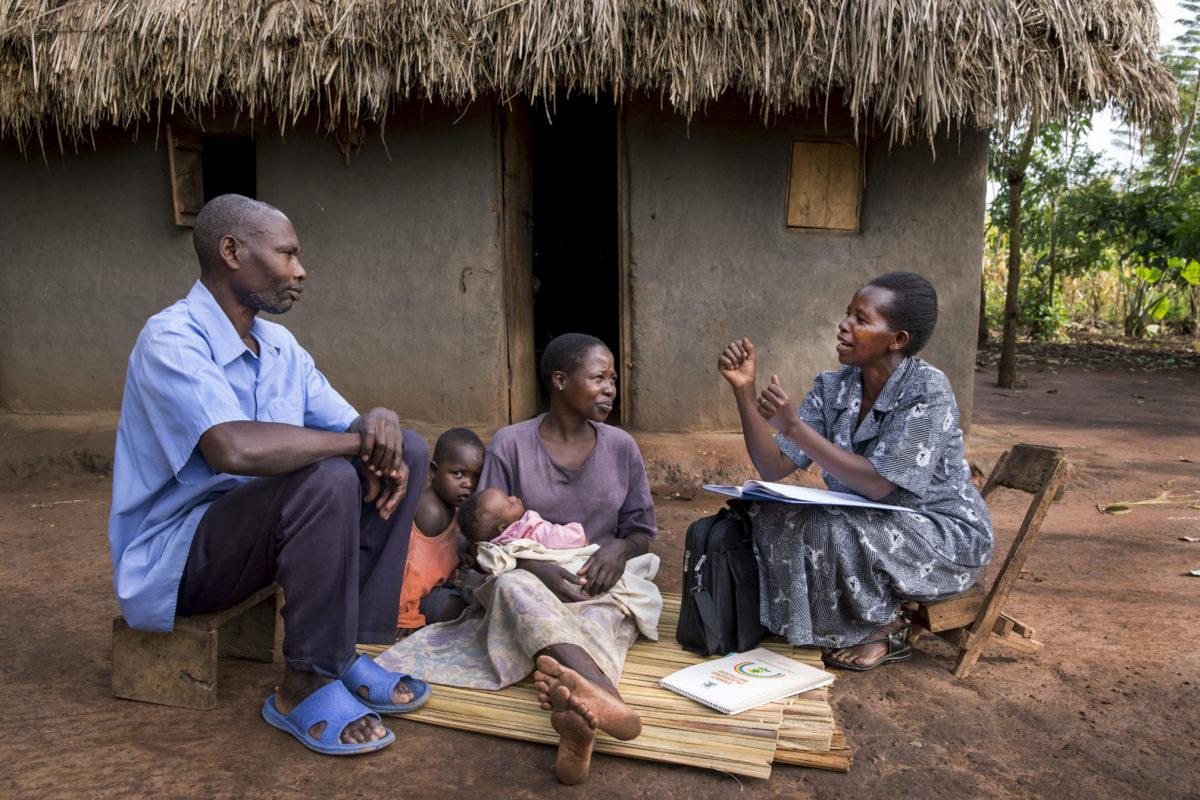
Q: As the handbook receives a significant amount of uptake and use, what does R4S hope will be the impact on family planning outcomes?
A: Private-sector drug shops are important contributors to an improved health system, and have a greater potential to reach clients who opt for private over public services because of social and system-related barriers such as stigma and discrimination. Private facilities are often more desirable because they are conveniently located closer to where they live and are open at night, and on weekends. We hope that countries intending to introduce family planning programs involving drug shops with a component of injectable contraceptives will, in this resource, find a useful tool which they can, upon adaptation, use to establish, manage, and effectively scale up family planning programs.
Visit the R4S blog to read more about the project’s work.





